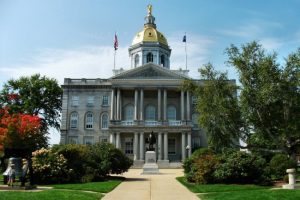 Manchester residents have decided that Ms. Joyce Craig is to take the oath of the office of the mayor. She has become the first woman to hold the office, winning 9 wards out of 12 in total. In the meanwhile, Keno’s future was at stake. The electronic gambling game “Keno603” was up for a vote as earlier this year, the New Hampshire legislature passed a bill to authorize and tax Keno games.
Manchester residents have decided that Ms. Joyce Craig is to take the oath of the office of the mayor. She has become the first woman to hold the office, winning 9 wards out of 12 in total. In the meanwhile, Keno’s future was at stake. The electronic gambling game “Keno603” was up for a vote as earlier this year, the New Hampshire legislature passed a bill to authorize and tax Keno games.
The bill aimed at raising funds to help full-day kindergarten through tax revenues from Keno games. The results of the vote show that residents from most of New Hampshire’s cities approved the electronic bingo game. There are only 3 New Hampshire municipalities, including Concord, Dover and Keene, which did not throw their weight behind Keno games.
This summer, New Hampshire legislature gave a green light to the legalization and taxation of the gambling game Keno. The move was part of a plan to fund full-day kindergarten statewide. Currently, two-thirds of New Hampshire cities offer full-day kindergarten, but the state pays only the first half of the kindergarten day. Under the new law, the state is to provide more money per pupil attending full-day kindergarten. The amount of the additional money will be estimated on the basis of Keno games profitability. The state’s expectations are to fully fund full-day kindergarten programs.
Opponents of the recently-signed bill raised concerns regarding problem gambling issues, outlining that gambling games will mostly affect vulnerable people with financial troubles. State lottery commission officials projected that the state is to collect approximately $443 million from Keno games. The money can be pumped into the education system. The decision of the state legislature gave the individual New Hampshire municipalities the right to allow or criminalize Keno games within their borders.
Detailed Information Regarding the Results of the Vote
 As aforementioned, Concord voters gave thumbs down to the legalization of Keno games on their soil. Locals described it as a “hard vote” as they needed to choose between funding their full-day kindergartens or preventing vulnerable people from gambling-related issues. By the time the voting booths were shut down, Keno’s future was determined – the game remains outside city’s legal boundaries.
As aforementioned, Concord voters gave thumbs down to the legalization of Keno games on their soil. Locals described it as a “hard vote” as they needed to choose between funding their full-day kindergartens or preventing vulnerable people from gambling-related issues. By the time the voting booths were shut down, Keno’s future was determined – the game remains outside city’s legal boundaries.
The game did not manage to win the hearts of Concord residents (2,249 people voted against the game, while only 1,723 voted in favor of the game). Dover residents also voted against Keno games (1,509 said “no” to the game against 1,164, who supported it). Keene naysayers also prevailed over the supporters (a majority of 1,450 boycotted Keno games, while only 820 people threw their support behind the gambling game).
The vote ended in a landslide victory for Keno games in Berlin with a staggering margin of 72% to 28%. In Rochester, the things can be best described as 50/50 chance for Keno games. At the end, Keno games won by just 1 vote.



















